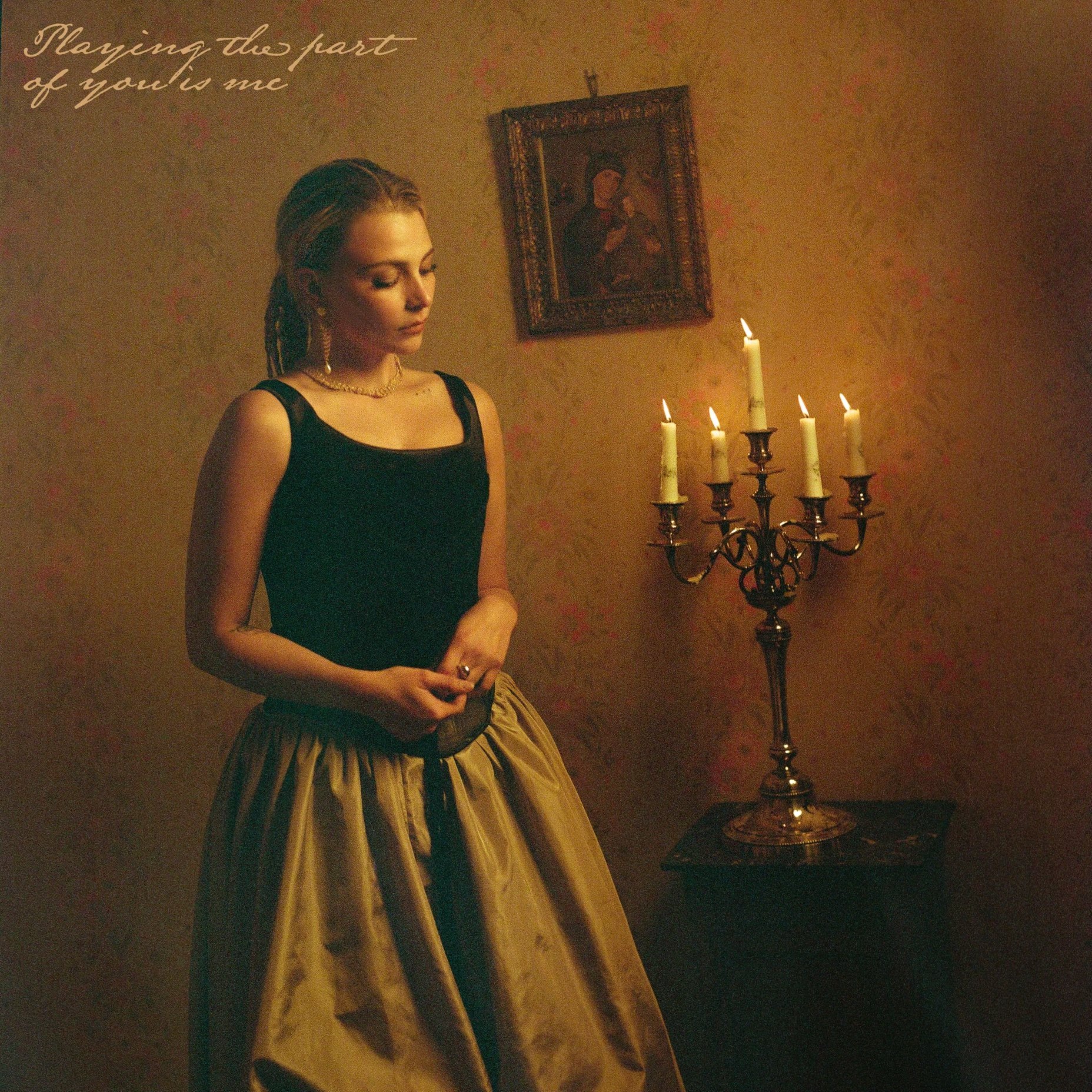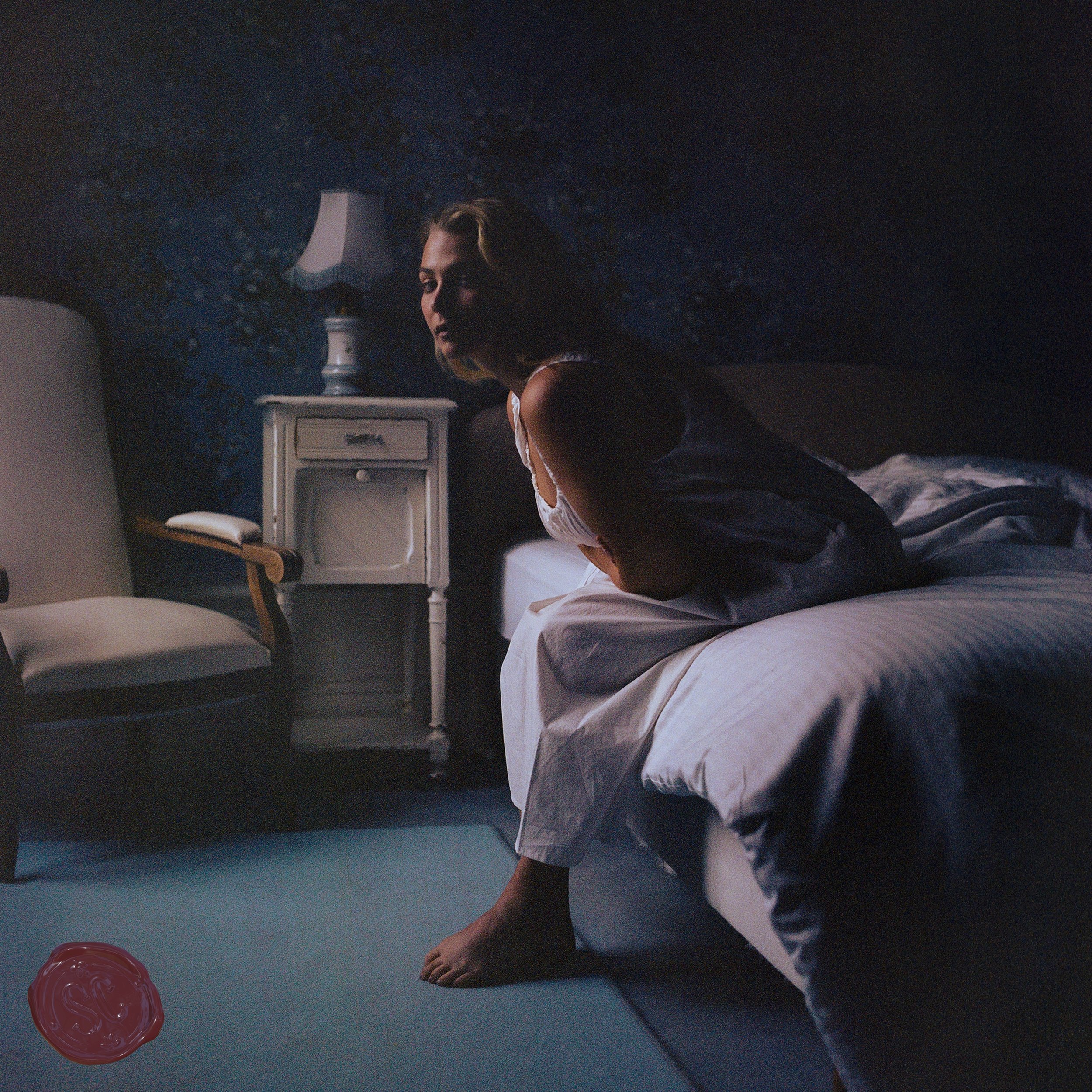Q&A: Savannah Conley Honors Difficult Emotions On Growing Up and the Human Experience in Debut Album ‘Playing the Part of You Is Me’
LIKE A SHARP KNIFE TO THE CHEST, TWISTED BY A POET’S GENTLE HAND — Savannah Conley’s highly anticipated debut album, Playing the Part of You Is Me, does not waste a single moment diving deep into the universal experiences of being in your early twenties. After years of songwriting and a rough terrain of label issues, Playing the Part of You Is Me was finally released on May 12. With tracks such as “Help Myself,” “Contortionist,” and “More Than Fine,” Conley expresses the kind of person she becomes in the whirlwinds of romance. The entire album is tinged with musical stylings akin to cherished indie artists such as Alvvays and Lorde, with the Americana aesthetic of Ethel Cain and Lana Del Rey.
Conley, a 26-year-old Nashville native, spent years being pushed into a small, confining box labeling her as a Southern sweetheart and Americana angel after signing a deal with a major label. But Playing the Part of You Is Me is certainly not the first album Conley has conjured up — she wrote two unreleased albums under the previous record label.
Secure and supported in her new ventures, Conley pays homage to her Southern hometown by capturing the raw, authentic, painful roots of country music in her work, with captivating lyrics and a soulful voice. Haunting melodies and mesmerizing vocals come with every track on Playing the Part of You Is Me, pairing perfectly with the piercing discernment of post-adolescent adventures and reflections heard in her lyrics. In “To My Innocence,” she anthems this idea, pulling the veil back on the values of the hometown she grew up in.
Whether you're dealing with isolation, imposter syndrome, heartbreak, or the gust of new love, Playing the Part of You Is Me is bound to resonate with some integral emotions about growing up and moving forward in the world. Put this record on when you need a friend who knows first-hand what you’re going through.
Read below to know more about Conley and her debut record, Playing the Part of You Is Me.
LUNA: Hey, Savannah! How has this year been leading up to the release of your debut album?
CONLEY: It's been great! It's been pretty chill in the beginning, just getting record stuff figured out and deciding how all the bits and pieces are going to work together visually. We finished all the visuals late last year, so we’ve kind of been editing and putting all that together for the first part of this year. And kind of figuring out exactly what we were going to do for release and how we wanted to plan around that. Then [we] started back touring, I guess two months ago, so it's been good!
LUNA: Awesome! That's great to hear. I know you’ve had to deal with some label drama in the past. Do you feel that divine timing has played a role in this record coming to fruition and being released?
CONLEY: No, but I would love to think that, that would be awesome. I do think that it has felt so intentional. We've had so much planning go into it. So many conscious decisions from years past of not releasing certain things, or leaving certain companies, or joining certain companies, that I absolutely feel like things fell together in a way that no one had anything to do with, that no one had any control over. So in that sense, sure. But it's also been a lot of planning and intention. It feels like a culmination of a lot of things.
LUNA: Playing the Part of You Is Me is a very interesting title for the record. Can you tell us how you came up with it?
CONLEY: Writing starts out for me as self-soothing and coping, but then once it's done, immediately the first thing I think is, how can this apply to anyone else? Or how could someone else relate to this? And how can this do anything for anyone else? Otherwise, it feels totally selfish to me. So in thinking about the record and how people related to it, it started to feel like so much of myself — and I get sick of myself. So I kind of just wanted to separate myself from it in some ways.
That title kind of just played into that. Where, yeah, I mean, if there's a world where I could feel something that either you're already feeling or [I] maybe feel it for you, I'm gonna do it, you know? It kind of stemmed from that. It also plays into the idea that I want people to make this record whatever they want to make it for themselves. So there's that aspect to it. It's open to interpretation.
LUNA: Looking back at your prior releases, it seems like your music has become increasingly haunting, with less of a country twang. How has your hometown of Nashville influenced — or deinfluenced — your songwriting?
CONLEY: Hmm. I mean, in ways, but also not, you know. It's almost like it's affected [it] and also not affected [it] at all. Wherever you grew up is going to affect how you do whatever you do, whether that's woodworking or whatever. Where your surroundings are growing up is really going to affect how you do what you do. The saddest songs in the world are country songs. The stuff that people hear now is not what it really is — it's whatever's coming out right now. Whatever is happening right now… that's not country music. That's not Nashville. I mean, Dolly Parton's first two records are the most heartbreaking records you'll ever listen to. That for sure influenced me. But then I never really felt a pull toward or away from any genre growing up. The only times that I felt that were when people tried to make genre mean more than it really does. Boxing you in, in a way that includes your identity. That's genre to me — it doesn't mean anything.
I don't have any attachment to any genre of any sort. The only thing that has attachment to it is the industry. And people don't care — people love variation. When I was in high school, we would play shows, these DIY shows that would be a punk band, a country band, a rapper, and a spoken word at the end. Shit like that — nothing made any sense. And everyone loved it because it was just people expressing themselves. No one even thought about it. It was only when I signed with a major label that I started thinking about it. And I was like, “Wait, why? Why do you care?” Like, why do you care about where I aligned genre-wise — why is that?
So, in the beginning, I was pushed in certain directions and away from other directions. But that was only for a blip of time. As soon as that blip was over, I was like, “Never again. I will never do anything like that ever again.” I'm going to do whatever I want, whatever that means; whatever it takes. That's kind of where we are now. This record definitely feels like the most accurate representation of who I am musically and emotionally. It took a minute to have a situation that made that available to me.
LUNA: That's awesome that you're here now! Have any other artists inspired you in your work? Any specific to Playing the Part of You Is Me?
CONLEY: For sure! In Playing the Part of You Is Me, the early 2000s women — especially the New York early 2000s stuff that was coming out. And I worshiped everything that Jack White ever touched when I was a kid. Also Feist and Regina Spektor — those are two [who] have just influenced everything I've ever done, and specifically with this record, and there's just something about the way they tell their stories and how vulnerable it is while still being accessible. That has always inspired me. That played a big role in this record.
LUNA: That's awesome. I can totally sense that from listening to the record. Quite a few tracks on this record follow a story of the life and death of love, from first spark to the dying flame, and the coping mechanisms that they come along with. Did you write these songs while in the throes of each emotional situation? Is your songwriting more “in the moment” or do you write more reflectively?
CONLEY: It totally varies. Sometimes it is in the moment, then sometimes it's years later. Sometimes it's a week after, or something that I realized later that I hadn't thought about before. It varies a lot. I wish I had a better answer!
LUNA: Your song “I Love You” is beautiful, and the context behind the story and recording of the song makes it devastatingly so. Can you tell us a little bit about your experience creating this track?
CONLEY: Yes. That was brutal. It was a relationship that I knew, probably from the beginning, I shouldn't be in. But the feelings there were so strong and palpable that I just couldn't keep myself from it. That song is just about that realization and knowing that it's a good thing and a bad thing, but that it was an important thing in my life and it meant something. We recorded the vocals to that song the day after that relationship ended. Doesn't matter what the situation is. It's not going to feel good to end a relationship no matter how it works. My producer was so patient and kind with me. That was not the most fun I've ever had, that's for sure. It was definitely something I didn't foresee being the case. Listening to it now is kind of hard for me, but I think that very much changed the way that recording happens.
LUNA: Your lyrics are so relatable. What do you hope the people in your audience who identify with these vulnerable testimonies of yours take away from this record?
CONLEY: Especially in your twenties, there's so many experiences that feel so specific to you and can feel so isolating or just confusing. If there's anything that people can glean from it, I just want [them] to be like, “Oh, I'm not the only person in the world who's felt this. I'm definitely not alone. Someone else has felt this way.” And there's something about that togetherness that makes things easier to handle — at least in my life that's been the case. This kind of commiserating that can happen from afar.
There's something powerful in sharing a trying experience, you know? I think that's probably what I hope happens for people, that there are songs that you just remember when you are going through something that's been hard for you, that you remember screaming [in] your car to yourself. That's something I want for people. I've had that from other artists in the past, and that's what it was for me writing it. So if I can share that, that would be great.
LUNA: How do you imagine your audience listening to Playing the Part of You Is Me for the first time?
CONLEY: I would hope front to back, the whole thing at once, but that rarely happens. I don't know, I kind of don't have a preference, really. Wherever it fits, feeling-wise for you. That's how I want it to come out. I don't really have a preference for how it's received or how it's played.
LUNA: I’m sure this question might be hard to answer, as this record feels very personal — almost like a diary — but do you have a specific song that is your favorite from the album?
CONLEY: I'm definitely not a person [who] enjoys my own work. I have friends that will listen to their own stuff and be like, “This is awesome!” That's not necessarily how I am. I don't listen to it leisurely, but my favorite one to play live is definitely “Don’t Make Me Reach.” “Contortionist” is really fun to do too. I think those were really fun to record as well. “More Than Fine” was so fun to record as well. Those are my two favorites to play live: “Contortionist” and “Don’t Make Me Reach,” and my favorite to record was “More Than Fine.”
LUNA: Finally, any more exciting plans for the rest of 2023? A tour for the record, perhaps?
CONLEY: Yeah! We'll finish this tour up, get the record out, and then probably do a tour around the record. But there’s nothing to announce yet. But we're all super excited. I'm excited with a tinge of nausea, you know — but still excited.







